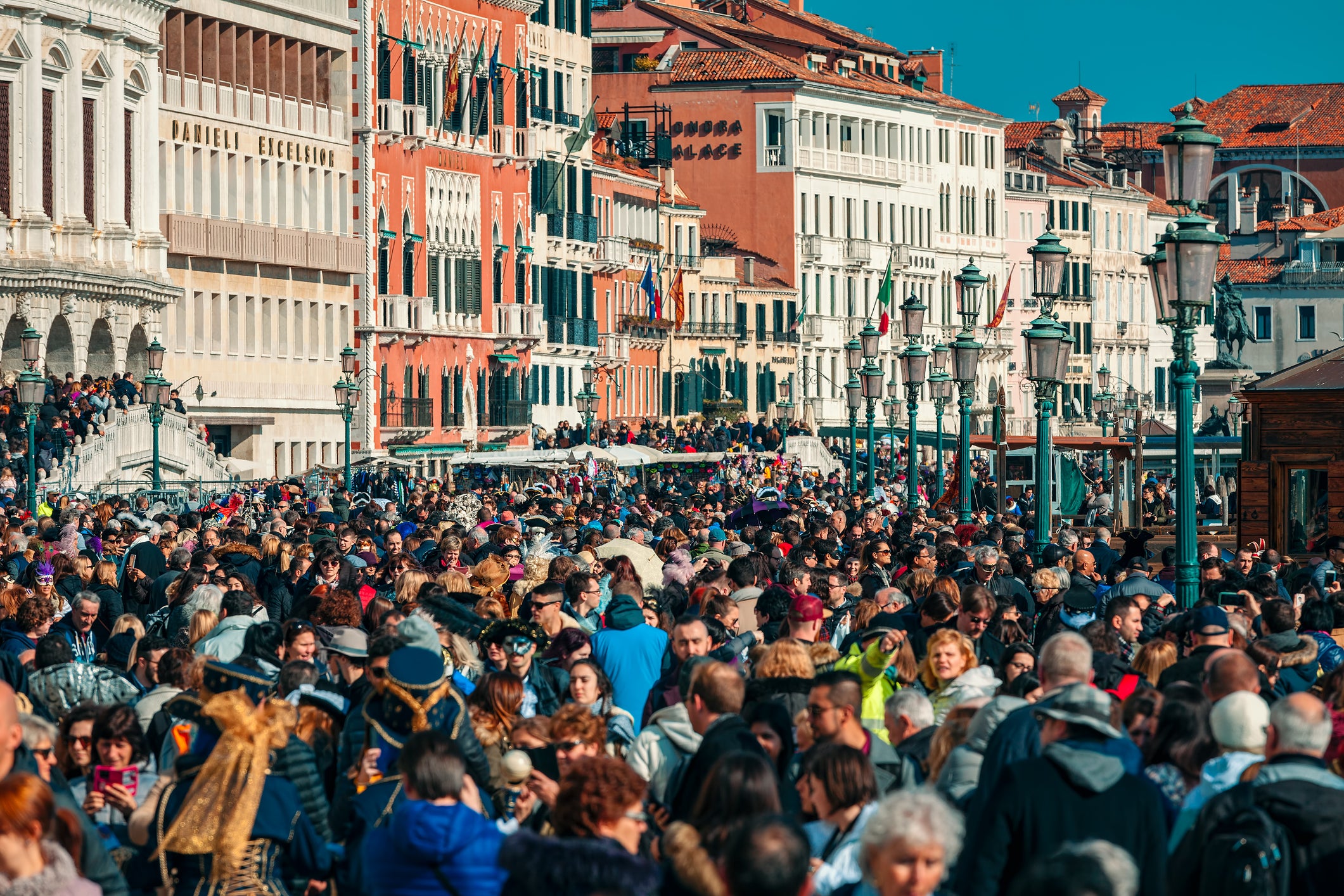Venice to continue controversial tourist tax – making it even more expensive for some

Your support helps us to tell the story
From reproductive rights to climate change to Big Tech, The Independent is on the ground when the story is developing. Whether it's investigating the financials of Elon Musk's pro-Trump PAC or producing our latest documentary, 'The A Word', which shines a light on the American women fighting for reproductive rights, we know how important it is to parse out the facts from the messaging.
At such a critical moment in US history, we need reporters on the ground. Your donation allows us to keep sending journalists to speak to both sides of the story.
The Independent is trusted by Americans across the entire political spectrum. And unlike many other quality news outlets, we choose not to lock Americans out of our reporting and analysis with paywalls. We believe quality journalism should be available to everyone, paid for by those who can afford it.
Your support makes all the difference.The popular tourist city of Venice will continue with its controversial day-tripper tax next year and even increase the fee for last-minute visitors.
The Italian city will extend its day-tripper tax through next year, increasing the number of days on which tourists have to pay to enter the city. The fee for last-minute visitors with go up to 10 euros, officials said on Thursday.
Venice Mayor Luigi Brugnaro stressed that the tax aims at helping the city and its citizens to battle over-tourism, avoiding peaks of visitors during crowded holidays and weekends.
The new pilot system will start on April 18 2025 and run until July 27, and the fee will apply to Fridays as well as weekends and holidays, for a total of 54 days.
Tourists who do not make reservations in advance will pay 10 euros instead of the usual five.
It is in force during peak hours, from 8.30am to 4pm.

Exemptions are granted to residents, Venetian-born visitors, students and workers, as well as tourists who have hotel or other lodging reservations.
At the end of the first test phase last July, Venice officials said that the tax had netted 2.4 million euros (£2 million), accounting for about 1,000 entrances on each of the test days.
Venice tax
How does the system work?
Any visitor who wishes to be in the historic heart of Venice – anywhere in the city apart from the Piazzale Roma transport access area and the offshore islands – between 8.30am and 4pm on the prescribed dates must register online, in advance, at cda.ve.it/en.
You will need a QR code on your smartphone or printed out to be allowed inside the ancient city.
If you simply want to pay the fee, clicking on “Pay the access fee” will take you through a fairly straightforward process. One tricky aspect is that you have to pretend you have read the privacy policy (all in Italian) by clicking on it before you can enable a checkbox.
Italians accounted for 60% of visitors to the ticket website in the period, followed by US, German and French citizens.
Mr Brugnaro on Thursday again responded to critics who have called it a failure and said it has not deterred as many arrivals as envisioned.
“Venice is the first city in the world that tries to manage the problem of over-tourism, we obtained important results,” the mayor said.
The world-famous lagoon city has long grappled with overwhelming influxes of tourists, with estimates based on cell phone data of 25 million to 30 million annual arrivals of both day-trippers and overnight guests since 2020.
The day-tripper tax, delayed by the pandemic, was heralded by Unesco member states when they decided against a recommendation to place the city on a list of world heritage sites in danger.
The city also escaped inclusion on the list two years earlier when it imposed a cruise ship ban down the Giudecca canal and through St Mark’s Basin.
Join our commenting forum
Join thought-provoking conversations, follow other Independent readers and see their replies
Comments